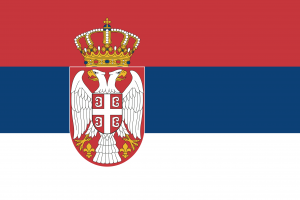Difference between revisions of "Language/Serbian/Grammar/Nouns:-Gender-and-Number"
m (Quick edit) |
m (Quick edit) |
||
| Line 1: | Line 1: | ||
<span pgnav> | |||
{| class="wikitable pg_template_nav" | |||
|[[Language/Serbian/Grammar/Cases:-Nominative-and-Accusative|Next Lesson — Cases: Nominative and Accusative ▶️]] | |||
|} | |||
</span> | |||
{{Serbian-Page-Top}} | {{Serbian-Page-Top}} | ||
| Line 92: | Line 98: | ||
{{Serbian-Page-Bottom}} | {{Serbian-Page-Bottom}} | ||
<span links></span> | <span links></span> | ||
<span pgnav> | |||
{| class="wikitable pg_template_nav" | |||
|[[Language/Serbian/Grammar/Cases:-Nominative-and-Accusative|Next Lesson — Cases: Nominative and Accusative ▶️]] | |||
|} | |||
</span> | |||
Revision as of 18:06, 29 March 2023
| Next Lesson — Cases: Nominative and Accusative ▶️ |
As a Serbian language teacher with over 20 years of experience, I know that learning Serbian grammar can seem daunting at first. However, understanding the basics of gender and number in Serbian nouns is important for developing a solid foundation in the language. In this lesson, I will explain the gender and number system in Serbian nouns.
Take some time to dive into these other pages after completing this lesson: Plurals & Verbs: Present Tense.
Gender in Serbian Nouns
Like many other Slavic languages, Serbian uses a system of grammatical genders for its nouns. Unlike English, where gender is denoted by pronouns only, Serbian nouns are divided into three genders: masculine, feminine, and neuter. In order to use proper grammar in Serbian, it is essential to know the gender of each noun.
Masculine Nouns
Most masculine nouns in Serbian end in consonants or "o". For instance, "stol" (table) and "muškarac" (man) are two common masculine nouns. There are some exceptions to this, however, so it is important to learn the gender of each noun individually.
Feminine Nouns
Feminine nouns in Serbian usually end in "a" or "ija". Some examples of feminine nouns include "kuća" (house) and "majka" (mother). Like masculine nouns, there are some exceptions to the general rule.
Neuter Nouns
The third gender in Serbian is neuter. Neuter nouns are usually denoted by the ending "-e" or "-o". For instance, "voće" (fruit) and "srce" (heart) are both neuter nouns.
Number in Serbian Nouns
In addition to gender, Serbian nouns also have a number - either singular or plural. This means that each noun can be either one object or more than one object.
Singular Nouns
When talking about one object or person, we use the singular form of a noun. For example, "Knjiga" (book) and "mačka" (cat) are both singular nouns.
Plural Nouns
To indicate more than one object or person, we use the plural form of a noun. In Serbian, most words add the suffix "-ovi" or "-evi" to form the plural, but some have different endings. For example, "knjige" (books) and "mačke" (cats) are both plural nouns.
Exceptions and Special Cases
As with any language, there are exceptions and special cases to the gender and number system in Serbian nouns. Some rules apply only to specific words, while others are particular to certain regions of Serbia.
One exception is that some Serbian nouns have the same form in the singular and the plural. For example, "ovoće" means both "fruit" and "fruits."
Another special case occurs when a letter is omitted in the spelling of a plural noun. For example, "vatra" (fire) becomes "vatre" (fires) in the plural, while "nebo" (sky) becomes "nebesa" (skies).
Conclusion
Understanding the gender and number system in Serbian nouns is essential for mastering the language. By learning the basic rules and paying attention to exceptions and special cases, you will be able to use proper grammar and communicate effectively in Serbian.
- <a href="https://en.wikipedia.org/wiki/Serbian_grammar" title="Serbian grammar">Serbian grammar</a>
- <a href="https://en.wikipedia.org/wiki/Serbo-Croatian_noun_types" title="Serbo-Croatian noun types">Serbo-Croatian noun types</a>
Upon wrapping up this lesson, take a look at these related pages: Negation & How to Use Have.
Videos
Bosnian/Croatian/Serbian Grammar: Gender of Nouns - YouTube
Bosnian/Croatian/Serbian Grammar: The Dative Singular of Nouns ...
Bosnian/Croatian/Serbian Grammar: Declension of Nouns - YouTube
Other Lessons
- Verbs: Reflexive Verbs
- How to Use Be
- Be Polite
- Verbs: Future Tense
- Present Tense
- Verbs: Imperative
- Prepositions
- Past Tense
- Pronouns: Personal Pronouns
- Adjectives
Sources
| Next Lesson — Cases: Nominative and Accusative ▶️ |
